By:
- Judy Piercey
Published Date
By:
- Judy Piercey
Share This:
Two Billion Reasons to Celebrate
From student scholarships to cancer vaccines, the Campaign for UC San Diego is changing lives

It was an ambitious and lofty goal. But for our university, overachieving is the norm.
When the Campaign for UC San Diego was launched in 2012, the focus of the 10-year, $2 billion comprehensive fundraising effort was to transform the student experience, our campus and, ultimately, the world. Now, UC San Diego has achieved the $2 billion milestone three years early—but we are not yet finished. Our 135,000 donors have created a powerful community that is driving fundraising momentum, and propelling us to continue our efforts to the conclusion of the campaign in 2022.
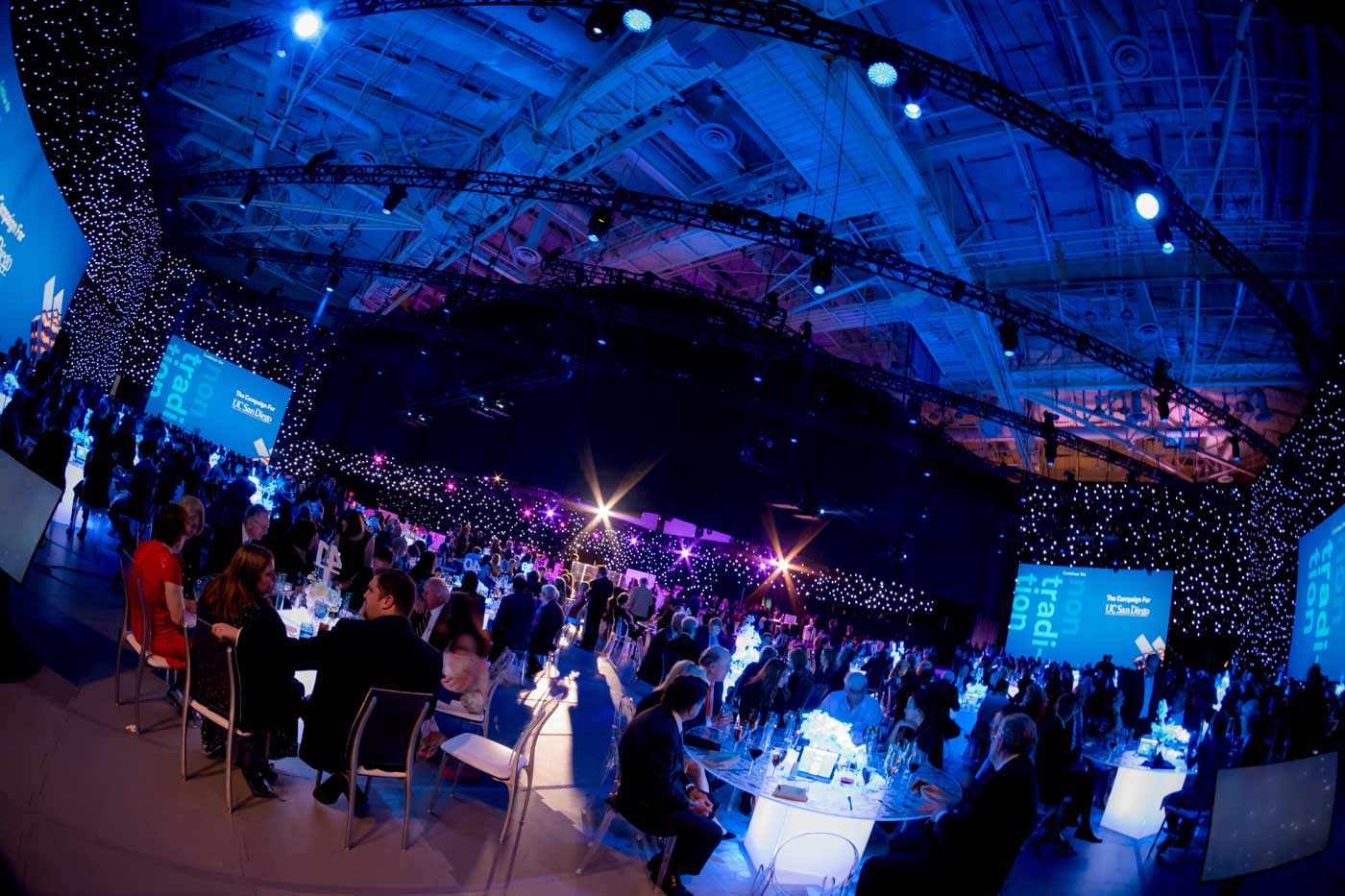
“The Campaign for UC San Diego is already transforming the university physically, intellectually and culturally,” said Chancellor Pradeep K. Khosla. “In seven years, we have expanded college access and affordability for underserved students, initiated campuswide interdisciplinary research initiatives to foster collaboration and solve societal challenges, and strengthened university and community partnerships to drive regional impact.
“With the three years remaining, imagine how many more innovators we can inspire, cures we can discover, and communities we can build with continued support,” added Khosla.
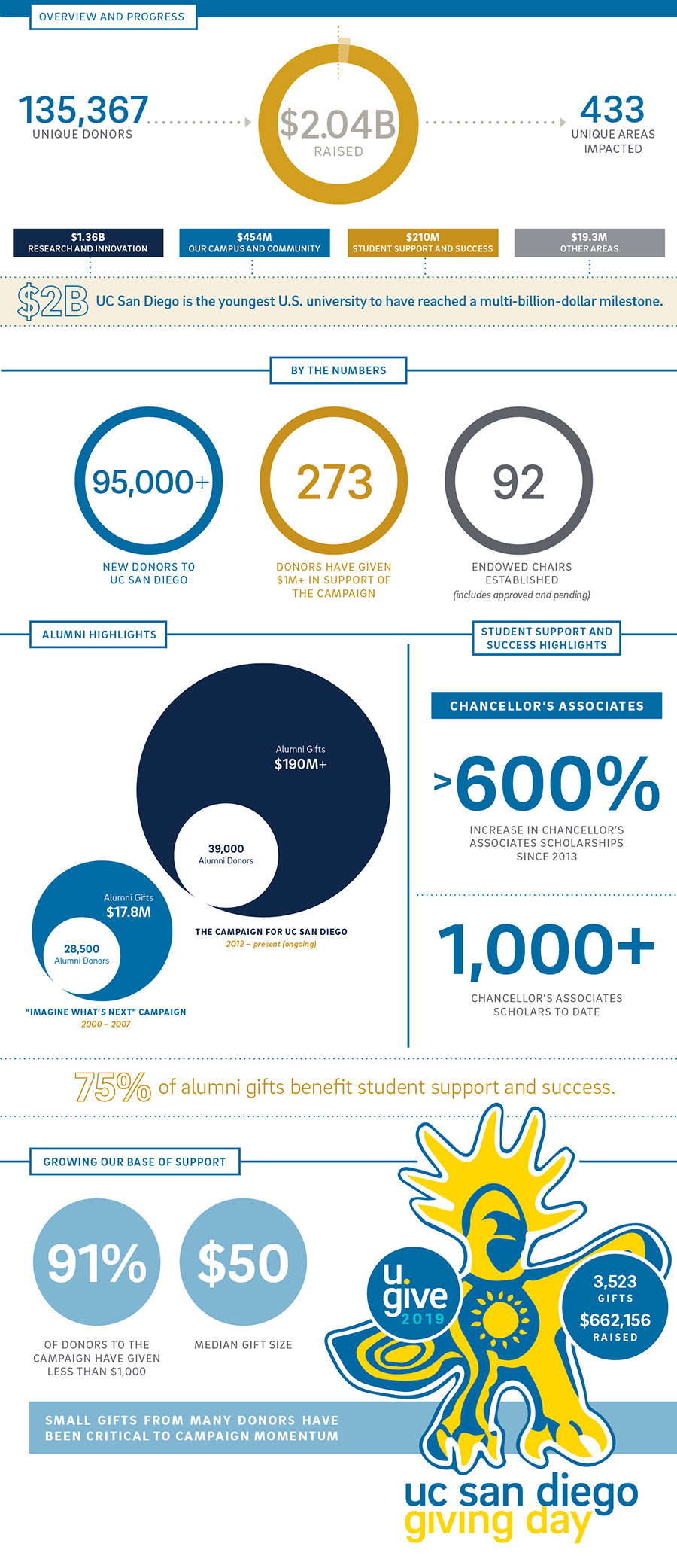
Private support for public universities
UC San Diego is the youngest university in the nation to have completed a $2 billion fundraising campaign. As of July 24, 2019, we raised $2.04 billion through donations from 135,367 unique donors with gifts ranging from $10 to more than $100 million.
Alumni have played a key role in the campaign’s success. More than half of the 101 members of the Campaign for UC San Diego cabinet are alumni. Their generosity, leadership and advocacy have brought an excitement and energy to this fundraising effort. Alumnus Ken Kroner, Ph.D. ’88, is chair of the Campaign for UC San Diego.
The campus community was also an important partner in helping us reach this milestone. In May 2019, faculty, staff and students enthusiastically participated in u.give—UC San Diego’s first Giving Day—raising $662,156 from 3,523 gifts of all sizes, demonstrating that giving together results in powerful outcomes. Giving Day donors had many opportunities to multiply their impact, thanks to challenges that offered gift matches. For example, UC San Diego alumnus Norberto Salazar ’77 challenged 20 donors to give to the Latinx/Chicanx Academic Excellence Initiative Fund to unlock his gift of $500.
“Private support enables us to advance knowledge for a better society, and better train talent and citizenry of tomorrow,” said Rajesh Gupta, holder of the Qualcomm Endowed Chair in Embedded Microsystems at the Jacobs School of Engineering. “Such a jump in capabilities comes from better facilities, better laboratories and improved teaching resources including mentoring for our students. Also better learning experiences through innovations in teaching, courses and degree programs.”
Gifts that change lives and transform the world
Charitable gifts to the Campaign for UC San Diego have impacted the campus in many ways, including the Chancellor’s Associates Scholars Program. Launched by Chancellor Khosla in 2013, this scholarship opportunity is expanding to include eligible students from over 100 high schools, community colleges and community-based organizations across the state. More than 1,000 Chancellor’s Associates Scholars have received awards that effectively provide a full scholarship. The program is funded in part by donations from Chancellor’s Associates, a loyal network of UC San Diego alumni, parents, faculty, staff and friends, connected by their dedication to proactive philanthropy.
Chancellor’s Associates Scholar Maria Triplett, a junior majoring in public health, grew up in southeast San Diego in a single-parent household. “Being first-generation, the scholarship has provided me with the opportunity to go to college and my family is able to experience my college experience with me,” Triplett said. “My niece and nephews can see that this is an additional route and that it’s attainable. I think overall it’s helped bring a new experience and pathway into my family and that’s what I love.”
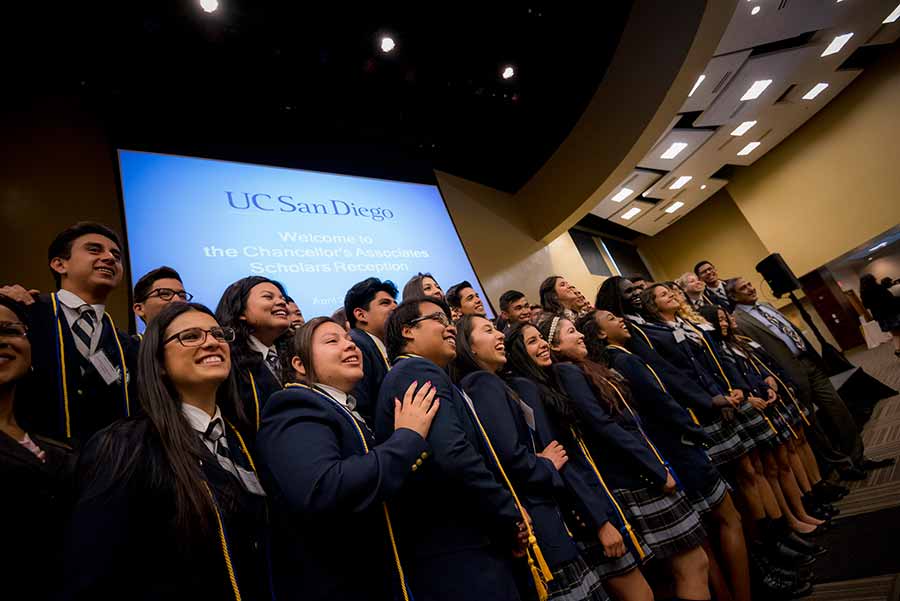
Designer babies, driverless cars and modified mosquitoes may be boundary-breaking, but the moral quandaries these advances create can raise controversy. To help close the gap between the pace of innovation and society’s ability to deal with these advances responsibly, UC San Diego—one of the world’s greatest producers of technology, medical innovations and scientific knowledge—launched the Institute for Practical Ethics. Loyal campus donors Joel and Ann Reed provided $1 million to create an endowment for permanent support in the future.
Arts and Humanities Dean Cristina Della Coletta noted, “Through the Institute for Practical Ethics, UC San Diego is focusing efforts to ensure our curiosity will be matched by our empathy, and that scientific progress is responsive to the values and priorities of the communities it aims to serve. Good science is responsible, socially conscious science.”
The Center for Climate Change Impacts and Adaptation, created in 2015 with a $5 million commitment from donors Richard and Carol Dean Hertzberg, is focused on a new chapter of climate research that considers how society can address the consequences of climate change that are already unfolding. These consequences range from sea-level rise to more extreme weather with the potential to disrupt commerce, agriculture and the habitability of certain regions. The center draws on the expertise of climate scientists as well as experts ranging from economists, sociologists and engineers to urban planners and political scientists. These individuals document climate change impacts on the environment, ecosystems and humans and devise practical solutions to climate change effects widely regarded as inevitable.
“This gift from the Hertzbergs has had immediate impact on climate change research and adaptation planning,” said Margaret Leinen, vice chancellor of marine sciences at UC San Diego and director of Scripps Oceanography. “The center is bringing together scientists and engineers across disciplines to address some of our most complex adaptation issues. They’ve developed a sea-level rise and flood alert program in the vulnerable coastal community of Imperial Beach, and are training the next generation of climate science and policy leaders through the professional master’s program at Scripps.”

After living with high-grade, stage IV pancreatic neuroendocrine cancer for more than three years, Tamara Strauss enrolled in a first-of-its-kind, pilot study at Moores Cancer Center at UC San Diego Health to test a personalized vaccine using her unique cancer mutations to boost an anti-tumor immune response. Tamara’s parents, Iris and Matthew Strauss, donated $1 million to help launch the clinical trial, hoping that a breakthrough treatment could help patients like their daughter beat their disease. The family has already lost one daughter to ovarian cancer. Scientists and clinicians have developed a technology that reliably defines the neoantigens—foreign protein fragments recognized by the immune system—in a patient’s cancer.
Ezra Cohen, M.D., professor of medicine at UC San Diego School of Medicine and co-lead of the trial, said, “Funding science that is this new, this innovative is challenging, but they recognize that this may be a paradigm shift for the way we treat cancer and the way we view cancer in the future. If we’re going to take the next big step toward curing cancer, we realized we have to do it on an individualized and personalized approach because that’s what cancer is.”
In 2017, UC San Diego alumnus Taner Halıcıoğlu ’96, Facebook’s first “real” employee outside of the founders, committed $75 million to launch the Halıcıoğlu Data Science Institute (HDSI) and support data science initiatives on campus. In its first year, the institute established itself as one of the largest academic data science programs in the nation. HDSI achievements include introducing a full data science major and minor; creating a postdoctoral scholar program; building a core of more than 200 faculty members affiliated across more than 20 academic disciplines; and attracting more than a dozen industry partners contributing to enhancing educational programs, research opportunities and a job pipeline for students.
“The institute serves as the hub for researchers, practitioners and teachers in the areas of data science, artificial intelligence and machine learning. They can meet to exchange ideas that create new research projects, new courses, and new applications that advance our understanding of the physical world, improve health care and make a better society for all of us,” said Gupta, who is also director of HDSI.
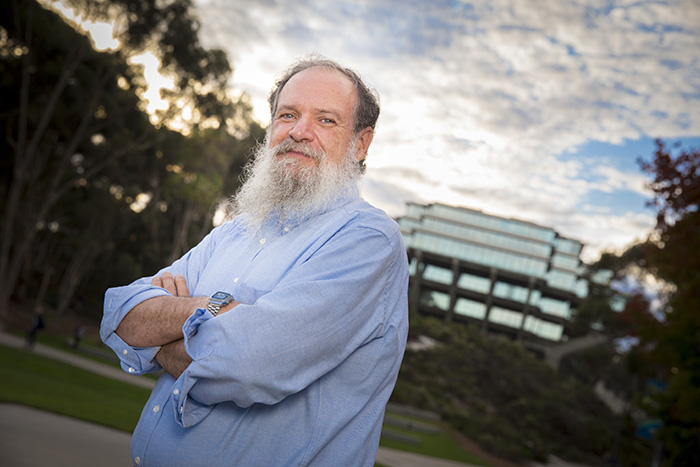
Franklin Antonio
Going forward, Gupta noted that plans include new courses, new degree programs and training programs to advance data science as an area and presence of UC San Diego in this newly emerging area.
Two years ago, UC San Diego alumnus Franklin Antonio made a $30 million gift to support programmatic expansion of the Jacobs School of Engineering. In recognition of his generous gift, a new engineering building designed for collaborative research, active learning and technology transfer will be named “Franklin Antonio Hall.” The approximately 200,000-square-foot building is being designed to facilitate cross-discipline collaborations that are critical for solving the toughest health, energy, autonomy and security challenges facing society.
“Franklin Antonio Hall is an expression of the core research themes of the UC San Diego Jacobs School of Engineering,” said Jacobs School of Engineering Dean Albert P. Pisano. “It’s a concrete example of how we leverage bold engineering solutions for the public good, and in particular, how we work together to develop solutions that advance human health and happiness.”
Pisano added, “UC San Diego is a place that attracts people who want to get things done for the greater good. When you empower talented people, amazing things happen. We are so fortunate that our work has inspired astounding confidence and support from the larger community.”
Philanthropy fuels our campus vision
After Khosla became UC San Diego Chancellor in 2012, he began the process of developing the campus’s first-ever strategic plan. A collective process, the plan encapsulated the mission, vision and goals for UC San Diego, providing a framework around which fundraising could coalesce. Through the vision of Chancellor Khosla, campus leadership and innovative faculty, along with a laser focus on the goals of the plan, we are experiencing an ongoing transformation supported by the Campaign for UC San Diego.
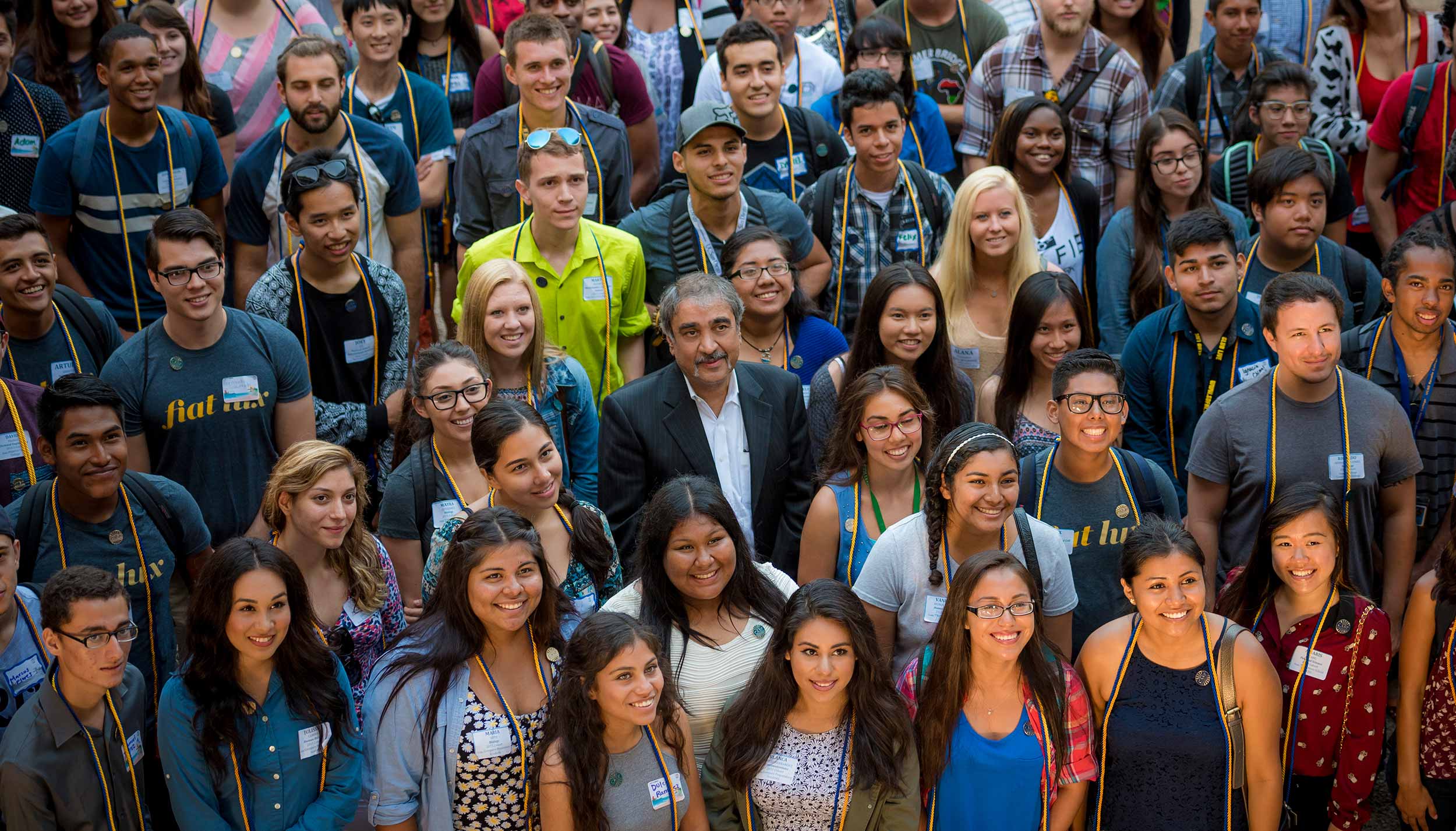
“By sharing this educational vision, and with support from donors, UC San Diego is taking its place as a key partner in our region and state,” said Dean Della Coletta. “As a public university, we have a duty to serve our diverse communities by educating future leaders as whole individuals equipped to transcend the boundaries between humanism and science, and between thinking and doing. Active participation from those who also envision a bettered society ultimately helps us all.”
Through the Campaign for UC San Diego, we are enhancing student support and success, enriching our campus, and redefining medicine and health care. Visit the Campaign for UC San Diego website to learn more.
Share This:
You May Also Like
Engineers Take a Closer Look at How a Plant Virus Primes the Immune System to Fight Cancer
Technology & EngineeringStay in the Know
Keep up with all the latest from UC San Diego. Subscribe to the newsletter today.



